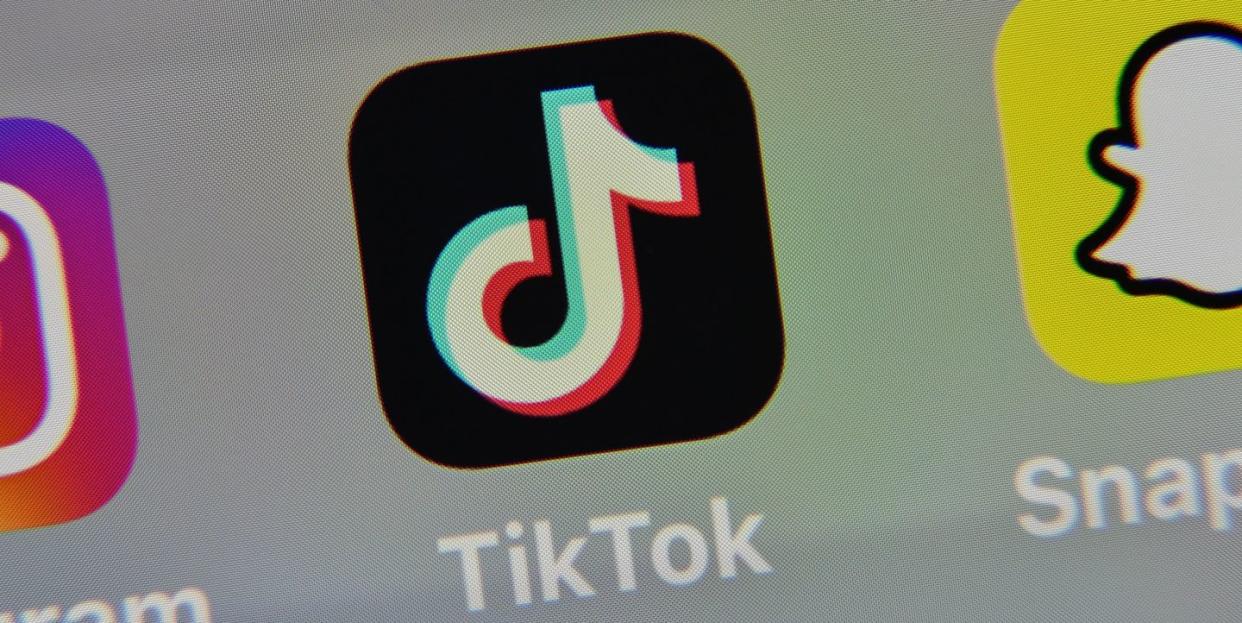TikTok Lives to See Another Day—A Federal Judge Just Blocked Trump's Ban

Although the Trump administration announced plans earlier this month to restrict access to Chinese-owned social media apps TikTok and WeChat—marking the latest attack in a geopolitical and technological power struggle between the United States and China—a pair of federal judges blocked the ban hours before it was set to kick in.
Originally, the Commerce Department, following executive orders signed by the president in August, set out to prohibit the ability to download or update the apps on American mobile app stores starting Sunday at midnight. People using WeChat, a multipurpose messaging platform, would also no longer be able to transfer funds or process payments.
Other restrictions included halting the provision of Internet hosting services, content delivery network services, and Internet transit or peering services to the apps, as well as the use of the apps' codes in other software in the country. Full restrictions were to go into effect for WeChat by September 20, and for TikTok by November 12. Meanwhile, TikTok employees would still be allowed to work and receive their salaries and benefits, per CNN.
Both apps are wildly popular in the United States, totaling more than 100 million users.
"Today's actions prove once again that President Trump will do everything in his power to guarantee our national security and protect Americans from the threats of the Chinese Communist Party," said U.S. Department of Commerce Secretary Wilbur Ross in a press release. "At the President's direction, we have taken significant action to combat China's malicious collection of American citizens' personal data, while promoting our national values, democratic rules-based norms, and aggressive enforcement of U.S. laws and regulations."
The move follows growing caution among users in the country about data mining and privacy concerns from the apps. But others have pointed out that most major social media apps, including U.S.-owned Facebook, also mine personal data from its users.
Can I still use TikTok?
Trump's ban was blocked by a federal judge hours before the order was to be implemented, in which TikTok would have been scrubbed from mobile app stores.
TikTok attorney John Hall argued that removing TikTok infringes on free speech, as the app's large volume of users makes it a "modern day version of the town square," per NPR. After hearing the legal arguments, Judge Carl Nichols of the U.S. District Court for the District of Columbia halted the ban.
Still, the Trump administration plans on furthering action against the app. "The [executive order] is fully consistent with the law and promotes legitimate national security interests," the Commerce Department said in a statement, per NPR. "The Government will comply with the injunction and has taken immediate steps to do so, but intends to vigorously defend the E.O. and the Secretary's implementation efforts from legal challenges."
Is TikTok a serious security threat?
The Commerce Department says that both TikTok and WeChat collect "vast swaths of data from users, including network activity, location data, and browsing and search histories," as well as actively participate "in China’s civil-military fusion and is subject to mandatory cooperation with the intelligence services" of the Chinese Communist Party.
TikTok has repeatedly denied any active collaboration between its data collection practices and the CCP, and has said in the past that its data is all stored in the U.S. with backups in Singapore. There is also little evidence to support the claim that TikTok acts as a spyware service for the Chinese government.
Theo Bertram, the app's head of public policy for Europe, the Middle East, and Africa, told BBC, "The suggestion that we are in any way under the thumb of the Chinese government is completely and utterly false." He also said the company would simply not comply with requests from the Chinese government if approached.
Even so, many other major social media apps–U.S.-owned or otherwise–also collect and store large amounts of personal information from its users.
The New York Times points out tech companies' reluctance to support the blocking of apps without a more organized policy, highlighting concerns that it impedes the First Amendment. Adam Segal, a cybersecurity expert at the Council on Foreign Relations, told the Times that it was unclear as to why Trump targeted Chinese-owned platforms specifically, as opposed to other similar apps. “A lot of it just feels to me to be improvisational,” he said.
As Washington Post tech columnist Geoffrey A. Fowler wrote, "We should be wary of xenophobia dressed up as privacy concerns."
What's the difference between data collection practices between TikTok and other social media apps?
According to the Post, TikTok keeps tabs on what videos users watch and how long they watch these videos for, as well as maintains full access to users' private messages on the app. In the U.S., TikTok also collects country location, Internet address, and type of device. If a user grants permission, the app will also gather their exact location, phone contacts, other social network connections, age, and phone number. This information is helpful for targeted ads as well as connecting you to people you may know or be interested in on the platform.
The Post also notes that, in some ways, TikTok collects less data than Facebook. Facebook tracks users across different devices, apps, and websites–even when you're not using Facebook and when your phone is off. In 2019, the Federal Trade Commission even sued the social media network for multiple privacy invasions, resulting in a record-breaking $5 billion settlement.
Is there any possibility that TikTok won't be permanently banned?
All is not lost for TikTok fanatics. The popular video app is reportedly undergoing negotiations for acquisition by American software maker, Oracle, which could lead to its continued use in the U.S. TikTok is currently owned by the Beijing-based ByteDance. The companies have until the Commerce Department's November 12 deadline to sort out a deal, which will still require approval from Trump.
You Might Also Like


